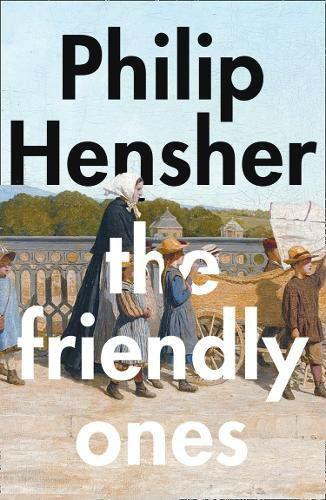The Friendly Ones by Philip Hensher, book review: A majestic 10th novel
Hensher's novel about two families, which is reminiscent of an engrossing yet challenging Victorian classic, is not a story to be rattled through quickly

With its large cast of characters and charting of intergenerational trials and tribulations, the revelation of tragedies hidden in a family’s past, and estrangements between kin, Philip Hensher’s majestic 10th novel, The Friendly Ones – which owes debts to both The Winter’s Tale and Eugene Onegin – is reminiscent of an engrossing yet challenging Victorian classic.
It’s the story of two families, neighbours on a leafy, up-market, middle-class street in early 1990s Sheffield. On one side of the garden fence is the soon to be widowed Hilary Spinster, a retired GP whose four children have already left home; while on the other is Sharif – a professor of engineering at the university – his wife Nazia, their twin boys, and, on this particular sunny day, their older daughter Aisha (home from Cambridge where she’s studying International Relations), along with a host of other family members.
Hilary has lived on the street for years, it’s where his children grew up, but Nazia and Sharif have only just arrived, hence the family barbecue. A freak accident brings an abrupt end to the day’s celebrations, but Hilary’s quick thinking as he vaults the garden fence to offer his assistance cements a friendship between the two families that will last for the next three decades.
The Friendly Ones is not a novel to be rattled quickly through. It’s a story that demands a degree of care and attention from the reader. Not least so as to be rewarded for one’s effort with the full appreciation of the minutiae that make this novel more than the sum of its parts.
Initially Hensher turns his attention to the Spinsters, a family riven with dissatisfaction and disappointments. So too, Nazia and Sharif’s clan are carrying their own trauma, Hensher later transporting us back to Bangladesh in 1971, a country fractured by the war of independence during which time to trust one’s neighbour was to take one’s life in one’s hands – the “friendly ones” of the title a reference both to the cordial relations formed over a Sheffield garden fence, and the name of the network of collaborators working with the Pakistani authorities during the war.
Notably, the Bangladesh-set scenes are no less fully realised than those in Britain. This is due in part, no doubt, to the fact that it’s a landscape Hensher’s already familiar with having set his prize-winning 2012 novel Scenes From Early Life in 1970s Dhaka. But it’s also evidence of the impressive evenhandedness he takes when it comes to the two strands of his story, no mean feat in a novel of this length and weight.
The devil is in the detail, though. Again and again – whether in the observation, made almost in passing, that Nazia knows that regardless of the years she and Sharif spend there, they’ll never be “settled” in their home like Hilary is in his (to believe that would be to “deny their history and their nature”); or the pitch perfect tone of an argument – Hensher proves himself a tenderly attentive and generous creator.
‘The Friendly Ones’ by Philip Hensher is published by Fourth Estate, £14.99
Subscribe to Independent Premium to bookmark this article
Want to bookmark your favourite articles and stories to read or reference later? Start your Independent Premium subscription today.

Join our commenting forum
Join thought-provoking conversations, follow other Independent readers and see their replies